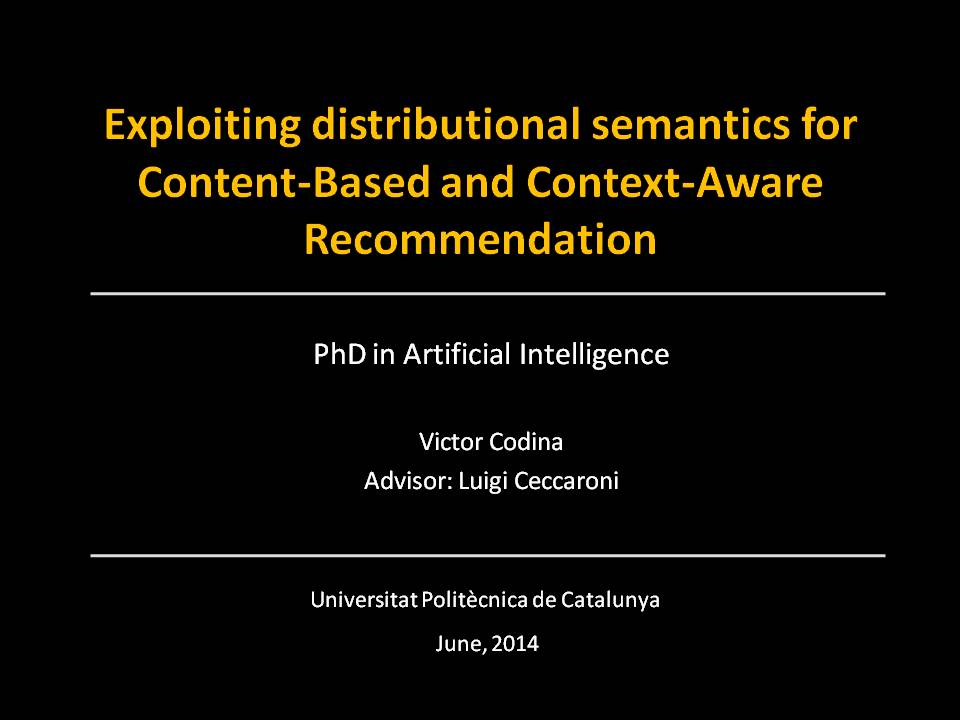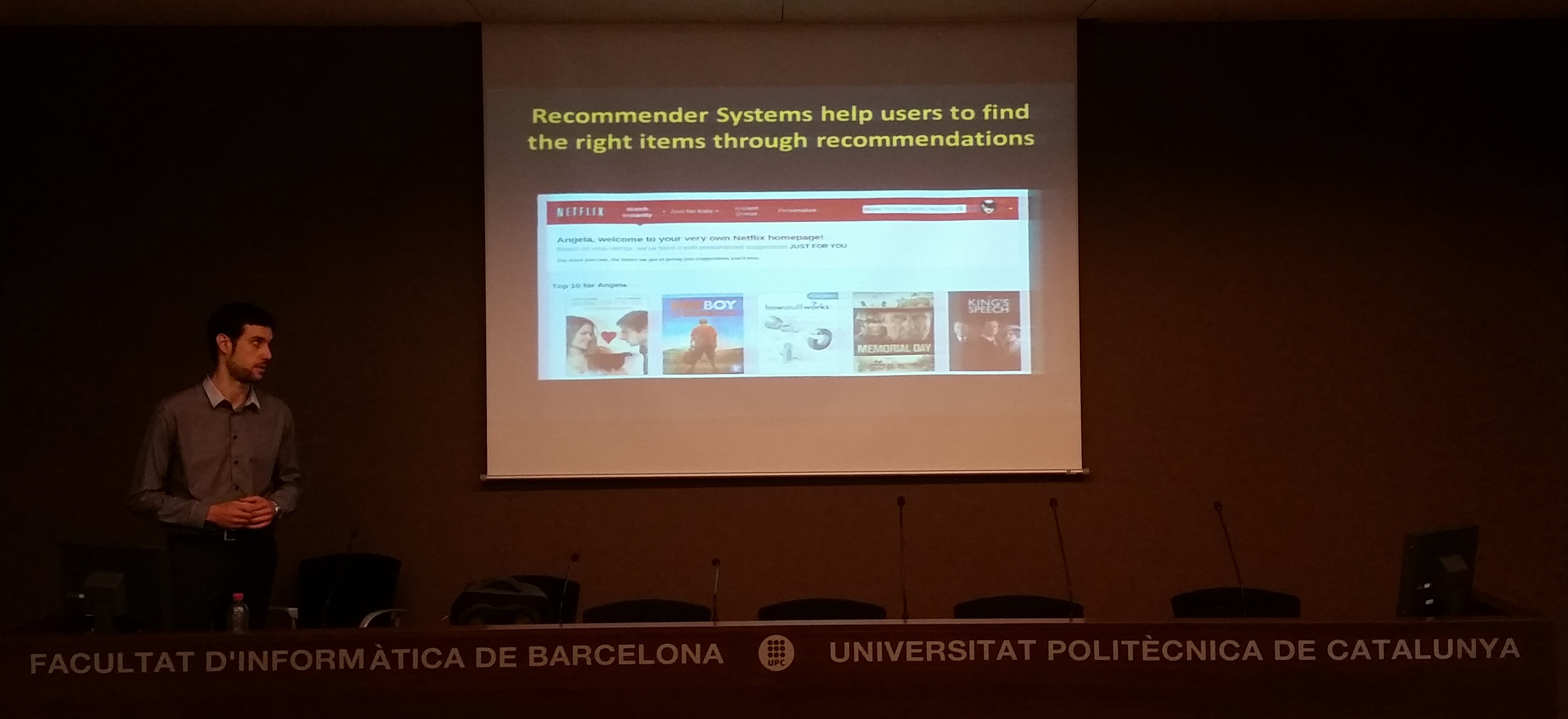
Víctor Codina addresses current issues related to how the distributional semantics of concepts describing the entities of the recommendation space can be exploited to mitigate the data-sparsity problem and improve the prediction accuracy with respect to state-of-the-art recommendation techniques. Víctor also throws light on two novel semantically-enhanced prediction models that address the sparsity-related limitations:
(1) a content-based approach, which exploits the distributional semantics of item’s attributes during item and user-profile matching;
(2) a context-aware recommendation approach that exploits the distributional semantics of contextual conditions during context modeling.
Víctor Codina, Exploiting Distributional Semantics for Content-Based and Context-Aware Recommendation
13 June 2014
11:00 – 13:00
Exploiting distributional semantics for recommendation
Artificial Intelligence
Supervisor
Luigi Ceccaroni, 1000001 Labs
Entrance
This event is open to the public.
During the last decade, the use of recommender systems has been increasingly growing to the point that, nowadays, the success of many well-known services depends on these technologies. Recommenders Systems help people to tackle the choice overload problem by effectively presenting new content adapted to the user’s preferences. However, current recommendation algorithms commonly suffer from data sparsity, which refers to the incapability of producing acceptable recommendations until a minimum amount of users’ ratings are available for training the prediction models.
This thesis investigates how the distributional semantics of concepts describing the entities of the recommendation space can be exploited to mitigate the data-sparsity problem and improve the prediction accuracy with respect to state-of-the-art recommendation techniques. The fundamental idea behind distributional semantics is that concepts repeatedly co-occurring in the same context or usage tend to be related. In this thesis, we propose and evaluate two novel semantically-enhanced prediction models that address the sparsity-related limitations: (1) a content-based approach, which exploits the distributional semantics of item’s attributes during item and user-profile matching, and (2) a context-aware recommendation approach that exploits the distributional semantics of contextual conditions during context modeling. We demonstrate in an exhaustive experimental evaluation that the proposed algorithms outperform state-of-the-art ones, especially when data are sparse.
Finally, this thesis presents a recommendation framework, which extends the widespread machine learning library Apache Mahout, including all the proposed and evaluated recommendation algorithms as well as a tool for offline evaluation and meta-parameter optimization. The framework has been developed to allow other researchers to reproduce the described evaluation experiments and make new progress on the Recommender Systems field easier.
- Andrej Košir, Associate professor at University of Ljubljana
- Javier Vazquez, Associate Professor at the Technical University of Catalonia
- Francesco Ricci, Associate professor at Free University of Bolzano
- Linas Baltrunas, Researcher at Telefonica Research
- Marc Torrens, Chief Technology Officer at Strands
